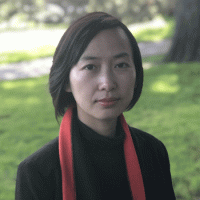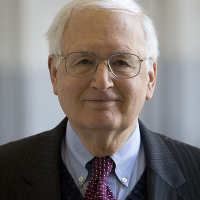del rosso - carnegie from 2008 carnegie-tsingua need assessments also new needs assessment - seecarnegie.org replacing elderly us scholars with new blood -additional year suport mandarin skills - quantuative/formal modeling china fellowship program of wilson need deeply more nuanced mediation us-chia our carnegie alums 10:00am – 11:00am ET Keynote SpeechModerated by Abraham Denmark. Opening remarks by Robert Litwak, Senior Vice President and Director of International Security Studies at the Wilson Center, and Stephen Del Rosso, Program Director, International Peace & Security at the Carnegie Corporation of New York. Keynote Speaker: J. Stapleton Roy, Founding Director Emeritus and Distinguished Scholar, Kissinger Institute on China and the United States. 12:30pm – 02:00pm ET The Chinese Authoritarian Model and Its Global ImpactModerated by Charles Kraus. Under President Xi Jinping, several trends—technological advancements in surveillance and big data, an institutional strengthening of the CCP, and a growing authoritarianism—converged to witness a more aggressive approach to domestic security in places such as Tibet, Hong Kong, and Xinjiang. In China’s northwestern province of Xinjiang, the government has engaged in a widespread campaign of repression, mass surveillance, and detainment. In support of this effort over the past decade, China has implemented a surveillance system that combines traditional methods with high-technology such as facial recognition. With this expansion in surveillance, some analysts have identified a “China Model” of authoritarianism in opposition to liberal democracy that some warn could be exported elsewhere. Elsewhere in the world, China has begun exporting its suite of surveillance technologies to numerous countries throughout the world, an initiative that triggers some concern about negative impacts on democracy and governance. What does this approach to domestic security and surveillance mean for the international system? What does this issue indicate for the future of China and its relationships with other powers? Fellows:
02:30pm – 04:00pm ET Global Norms, Governance, and Chinese PolicymakingModerated by Robert Daly. The Chinese government adopts an increasingly assertive role in multilateral institutions, such as the United Nations, even as it founds alternate fora, like the Asian Infrastructure Investment Bank. It is conceivable that a stronger China will push for alterations to existing and emerging rules and norms to suit its interests. Across ungoverned spaces or areas of contested international governance, such as outer space, the deep sea, and poles, China has attempted to emerge as a global leader in norm-setting. Data policy constitutes another arena of contestation where China exerts increasing influence while advancing a competing vision of privacy and internet governance often at odds with Western models. However, Chinese policymaking does not occur in a vacuum, and a surprising history of “policy collaging” points to the oftentimes hidden outside influences on Chinese norms, legislation, and reform efforts. Fellows:
THURSDAY, FEBRUARY 410:00am – 11:30am ET China’s Foreign Policy Along a Contested PeripheryModerated by Abraham Denmark. In recent years, President Xi Jinping of China has embarked upon a more assertive and active Chinese foreign policy, particularly in its own neighborhood. 2020 witnessed a deadly dispute erupt over the Line of Actual Control with India that spurred a sharp increase in India-China tensions. Shortly thereafter, the United States and India signed an important bilateral defense agreement, the BECA, which signals stronger ties in the face of rising Chinese involvement in the region. In Pakistan, China has launched the geopolitically-significant China-Pakistan Economic Corridor as part of its Belt and Road Initiative. The question of China’s influence over Pakistani decision-making bears importance on India’s rise and the United States’ role in South Asia. Elsewhere, Taiwan is facing increasing pressure from China in the aftermath of President Tsai Ing-wen’s reelection in 2020. Within this tense atmosphere, the Taiwan-Japan-United States trilateral relationship will grow increasingly important for stability in the region. Going forward, these tensions and the future of the wider region will hinge upon China’s foreign policy approaches to its periphery, as well as the responses of local actors and great powers such as India, the United States, and Japan. Fellows:
12:30pm – 02:00pm ET The BRI and Chinese Influence in the Global SouthModerated by Jennifer Turner. China’s Belt and Road Initiative (BRI) currently reaches a wide swath of countries with a particular emphasis on Southeast Asia and the broader Global South. Of China's numerous investments, nuclear exports constitute one of the key areas with the potential for strong impact geopolitically. China’s hydropower investments in Southeast Asia also have the potential to meet growing energy demand while mitigating climate change. However, they also bring challenges with cross-boundary water governance, environmental damage, and large-scale displacement of communities. Elsewhere, concerns about China’s intentions and the environmental impact have forced China to deploy new discourses throughout the Global South centered on a green BRI. Is this a genuine embrace of environmentally-minded development or a clever marketing strategy? Exploring and parsing out the on-the-ground facts and bird’s eye view of the BRI will expand our understanding and enable policymakers to craft effective and timely responses to this geopolitically significant effort. Fellows:
02:30pm – 04:00pm ET Is a New Cold War Inevitable? Chinese Intentions and the Role of MisperceptionModerated by Robert Daly. Over the past four years, policy discussion on the potential for a second Cold War have expanded greatly as tensions rise in the U.S.-China relationship. Indeed, great power competition to varying degrees has become bipartisan consensus under the Trump administration. On issues ranging from trade and human rights to intellectual property and international security, the United States and China increasingly identify the other as their chief rival. However, as shown in the American experience with the People’s Republic of China between 1949 and 1972, misperception and mirroring often cloud intelligence analysis and policy decision-making processes. On the other hand, American and Chinese national interests and strategic intentions are clearly divergent. On issues such as the South China Sea, China’s intentions and desired end state will greatly impact the course of U.S.-China relations. Understanding the nature of the competition and its historical parallels can serve to guide policymakers and reduce the risk of escalation. To what extent are the United States and China locked into competition? Are the current tensions the result of policy choices or the natural outcome of divergent national interests? Fellows:
Over the past year, the 2020 Wilson China Fellows have undertaken policy research on a range of vital issues relevant to the rise of China and the future of U.S.-China ties. From February 3rd to the 4th, our Fellows will publicly present and debate their findings on topics ranging from international security to the environment in order to address important policy questions, such as:
Please join us virtually as the 2020 Wilson China Fellows present their findings and policy recommendations on February 3rd and 4th. Find the full agenda and list of speakers above, under the "Agenda" tab. You may submit questions for the speakers by emailing asia@wilsoncenter.org or tweeting us @AsiaProgram. Panelists From Left to Right, Top Row: Darren Byler, Sara Castro, Christopher Colley, Alexander Dukalskis, Sheena Chestnut Greitens, Isaac Kardon, Lami Kim. Bottom Row: Wendy Leutert, Jessica Liao, Adam Liff, Xiao Liu, Oriana Skyler Mastro, Joshua Shifrinson, Cecilia Han Springer INTRODUCTIONS Robert S. LitwakSenior Vice President and Director of International Security Studies Stephen Del RossoProgram Director, International Peace & Security at the Carnegie Corporation of New York KEYNOTE SPEAKERMODERATORSPANELISTS Sheena Chestnut GreitensWilson China Fellow; Associate Professor at the Lyndon B. Johnson School at the University of Texas at Austin.  Darren BylerWilson China Fellow; Post-Doctoral Fellow at the Center for Asian Studies, University of Colorado Boulder  Alexander DukalskisWilson China Fellow; Associate Professor, the School of Politics and International Relations at University College Dublin  Xiao LiuWilson China Fellow; Assistant Professor at McGill University and Fellow at the Centre for the Fourth Industrial Revolution of the World Economic Forum.  Wendy LeutertWilson China Fellow; GLP-Ming Z. Mei Chair of Chinese Economics and Trade, Hamilton Lugar School of Global and International Studies and the Department of East Asian Languages and Cultures at Indiana University.  Isaac KardonWilson China Fellow; Assistant Professor, Department of Strategic and Operational Research at the U.S. Naval War College  Adam LiffWilson China Fellow; Associate Professor of East Asian International Relations, Hamilton Lugar School of Global and International Studies, Indiana University and Director of the “21st Century Japan Politics & Society Initiative” (21JPSI).  Christopher ColleyWilson China Fellow; Assistant Professor of Security Studies at the National Defense College of the United Arab Emirates  Lami KimWilson China Fellow; Assistant Professor at the U.S. Army War College and Adjunct Fellow at Pacific Forum.  Cecilia Han SpringerWilson China Fellow; Senior Researcher at Boston University's Global China Initiative.  Jessica LiaoWilson China Fellow; Assistant Professor of Political Science, North Carolina State University.  Oriana Skylar MastroWilson China Fellow; Center Fellow at Stanford University’s Freeman Spogli Institute for International Studies (FSI)  Sara CastroWilson China Fellow; Assistant Professor, United States Air Force Academy, Colorado Springs, Department of History  Joshua ShifrinsonWilson China Fellow; Assistant Professor of International Relations, Pardee School of Global Studies, Boston University. HOSTED BY ASIA PROGRAMThe Asia Program promotes policy debate and intellectual discussions on U.S. interests in the Asia-Pacific as well as political, economic, security, and social issues relating to the world’s most populous and economically dynamic region. Read more  KISSINGER INSTITUTE ON CHINA AND THE UNITED STATESThe mission of Kissinger Institute on China and the United States is to ensure that informed engagement remains the cornerstone of U.S.-China relations. Read more  CHINA ENVIRONMENT FORUMSince 1997, the China Environment Forum's mission has been to forge U.S.-China cooperation on energy, environment, and sustainable development challenges. We play a unique nonpartisan role in creating multi-stakeholder dialogues around these issues. Read more  HISTORY AND PUBLIC POLICY PROGRAMThe History and Public Policy Program uses history to improve understanding of important global dynamics, trends in international relations, xand American foreign policy. Read more |
how to celebrate 2.5 bn asian millennials leading sd goal generation
| Consequences what happens when America's richest programmer bill gates reviews Ezra Vogel- Asia-America's kindest connector. .. Macraes' last 100 trips to Asia - they started with dad Norman Macrae teen serving in allied bomber command (today's Myanmar)- The Economist became min diary of Norman Macrae's half century of asian trips from Myanmar 1943 on- we archive that at normanmacrae.net economistjapan.com; connection of my 50 trips with 5 generations of my family in Asia only made full sense from 2001 and mostly 15 trips to Bangladesh thanks to interviews with Fazle Abed & friends 1 2 3 and young chinese scholars at his 80th birthday filled most gaps EconomistPoor.com .. Asia trips 1 to 51 india -1-3 1984-2004; indonesia 4-7 (1982-1994) ; singapore 8-10 (1982-1992) japan (11-17) 1985-2013; thailand (18.19) 1984-1995 ; malaysia (20-21) ; 1993 korea (22-23); 1990-2017 bangladesh (24-39) 2007-2018; dubai (40,41) 2015,6; qatar(42) 2017; china (43-50) 2016-2019 hong kong 51 (1996) like 7 members of my scotttish family tree i have enjoyed the huge privilege of learning more about advancing the human lot from the two thirds who are asian than my own race caucasian
|
Wednesday, February 3, 2021
- how easy it is abuse absolute power
why conern on rise of china?
media advice on what to do from good to horrid
scattered summary
america thinks anout change in china in much too short a time span
why has us policy of engament in china become unpopular with pundits - mirscilus human develop,ent - wester educate chinese governing chia institutions- modernised education ystem- -- wealth flows
modernised economy/society and its poitican system
dont prejudge where china is evolving over a few short years
globalisation winners and losers long term pattern n=both usa and china
focus on foreign policy goals not changes to its domestic system
if we cant help remake cuba why do we think we can rebuild china, afghanistan anywhere
more dsplay ore consciousness of danfers of nuclear war
lessons of cold war forgotten
4 dont underestimatedamage recovering from our soft power over last 4 years- all over world countries looking at cyhina and usa - china life is normal ; usa shutdown- china vaccine may work- china still growing;
us nit psatry to 2 trades tcpp rcp (mchina member rcp)
usa not well posituoned to take on onu=tegrated challenges other nations around world want supporton
us income discrepancues soarung - never seen such disparity - top 10 % own 88%
nothing forbottom 50%
friennd/allies could rely on reasonNLE CONSSTENY OVER TIME- DONT ASSUME USA CAN JUST RETURN- LOSS OF CONFIDENCE OF WORLDS NATIONS
us has abundat hyman and natural resources-could have celbrated wise in china-all past assumptions now broken
federalist paper63maddison -
Subscribe to:
Post Comments (Atom)





No comments:
Post a Comment